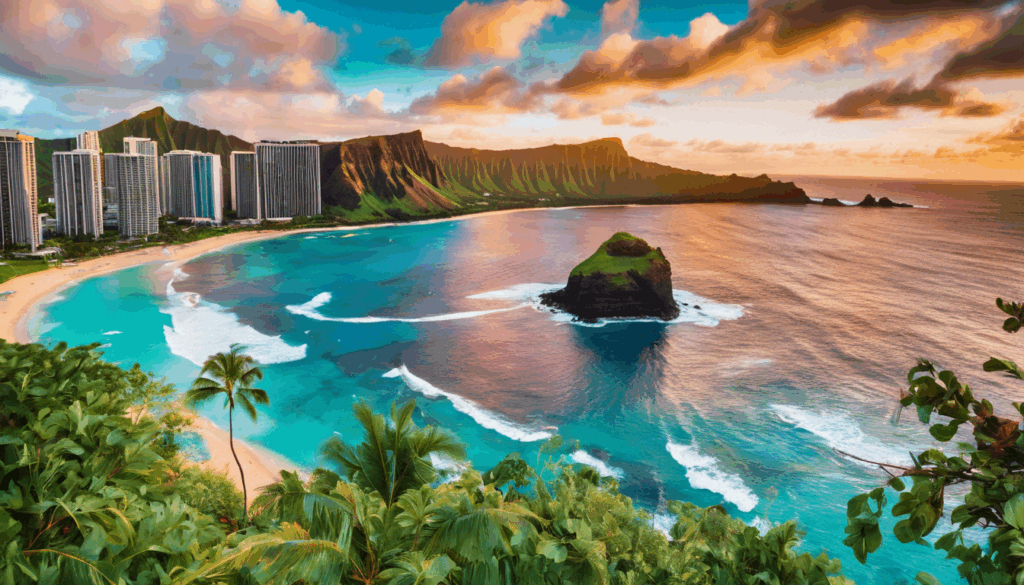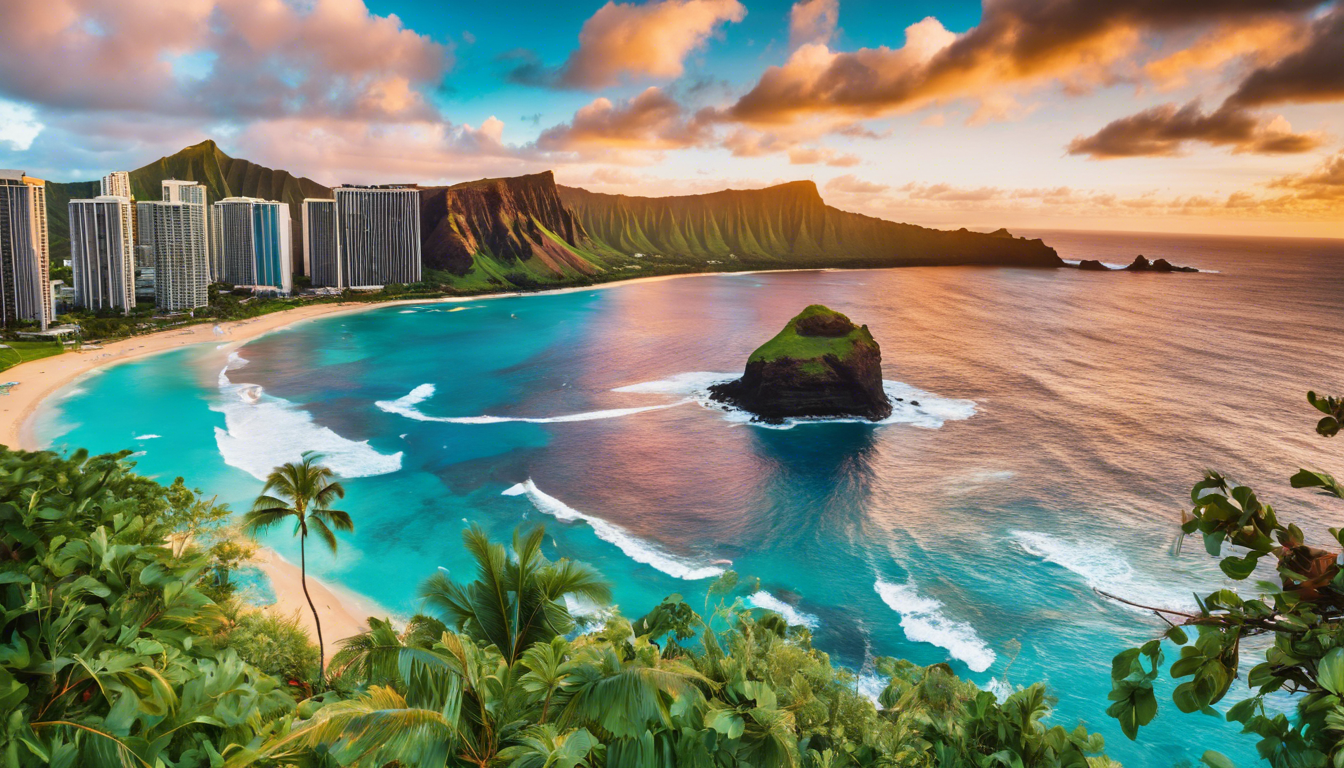
Immerse Yourself in Paradise: Exploring Hawaiian Holidays and Traditions
Hawaii, a breathtaking archipelago in the heart of the Pacific, is renowned for its stunning landscapes, vibrant culture, and unique traditions. Beyond the sun-kissed beaches and lush rainforests, lies a rich tapestry of customs and celebrations that offer a glimpse into the soul of the islands. Understanding Hawaiian holidays and traditions is key to truly appreciating the aloha spirit. From ancient practices to modern festivities, these observances reflect the deep connection between the Hawaiian people and their land, their ancestors, and each other. This article will delve into the fascinating world of Hawaiian holidays and traditions, providing insights into their origins, significance, and how they are celebrated today.
Ancient Hawaiian Traditions: A Foundation of Culture
Before Western contact, Hawaiian society was deeply rooted in spirituality and a profound respect for nature. The ancient Hawaiians developed a complex system of beliefs and practices that governed their daily lives and shaped their understanding of the world. Many of these ancient traditions continue to influence Hawaiian holidays and traditions today.
Hula: The Heartbeat of Hawaiian Culture
Hula is more than just a dance; it is a sacred art form that tells stories through movement, music, and chanting. Traditionally, hula was performed to honor the gods, celebrate important events, and preserve oral history. The movements, gestures, and costumes all hold symbolic meaning, conveying narratives of creation, love, war, and nature. There are two main types of hula: kahiko, the ancient form, and ʻauana, the modern style. Hula is prominently featured in many Hawaiian holidays and traditions, connecting the past to the present.
Luau: A Feast of Celebration
A luau is a traditional Hawaiian feast, often held to celebrate significant milestones such as birthdays, weddings, or graduations. The word “luau” refers to the taro leaves that are used to wrap food for cooking in an underground oven called an imu. A traditional luau features a variety of Hawaiian delicacies, including kalua pig (roasted in the imu), poi (a staple food made from taro), lomi salmon (salted salmon massaged with tomatoes and onions), and haupia (a coconut milk dessert). Luaus are an integral part of Hawaiian holidays and traditions, fostering a sense of community and sharing.
Heiau: Sacred Places of Worship
Heiau are ancient Hawaiian temples or places of worship. These structures were often built on elevated platforms and served as centers for religious ceremonies, sacrifices, and governance. Different types of heiau were dedicated to various gods and purposes, such as agriculture, healing, and warfare. While many heiau have been lost to time or development, some have been preserved and restored, serving as reminders of Hawaii’s rich spiritual heritage. Visiting these sites can provide a deeper understanding of the spiritual context of Hawaiian holidays and traditions.
Modern Hawaiian Holidays: A Blend of Past and Present
While ancient traditions continue to play a vital role in Hawaiian culture, modern Hawaiian holidays and traditions reflect a blend of indigenous practices and influences from other cultures. These celebrations offer opportunities to honor the past, celebrate the present, and look forward to the future.
Lei Day: A Celebration of Aloha
Lei Day, celebrated annually on May 1st, is a statewide holiday dedicated to the spirit of aloha. Leis, garlands of flowers, shells, feathers, or other materials, are symbols of love, friendship, and respect. On Lei Day, people exchange leis, participate in lei-making competitions, and attend cultural performances. The holiday was established in 1928 and has since become a beloved tradition, embodying the warmth and generosity of the Hawaiian people. The exchange of leis is a central component of many Hawaiian holidays and traditions.
Kamehameha Day: Honoring a Unifying King
Kamehameha Day, observed on June 11th, honors King Kamehameha I, the warrior chief who united the Hawaiian Islands under his rule in the late 18th and early 19th centuries. The holiday is marked by parades, floral floats, and traditional Hawaiian ceremonies. Statues of King Kamehameha I are draped with leis, and cultural performances showcase the history and legacy of the king. Kamehameha Day is a significant part of Hawaiian holidays and traditions, highlighting leadership and unity.
Prince Kuhio Day: Remembering a Beloved Prince
Prince Kuhio Day, celebrated on March 26th, commemorates Prince Jonah Kuhio Kalanianaʻole, a member of the Hawaiian royal family who served as a delegate to the U.S. Congress. Prince Kuhio was a champion of Hawaiian rights and worked tirelessly to improve the lives of his people. The holiday is marked by parades, cultural events, and community gatherings. Prince Kuhio Day is an important part of Hawaiian holidays and traditions, recognizing his contributions to the Hawaiian community.
Aloha Festivals: A Celebration of Hawaiian Culture
The Aloha Festivals are a series of cultural events held throughout the Hawaiian Islands each year, typically from August to September. The festivals showcase Hawaiian music, dance, food, and crafts, providing opportunities for residents and visitors alike to immerse themselves in the aloha spirit. Events include parades, street festivals, and cultural demonstrations. The Aloha Festivals are a vibrant part of Hawaiian holidays and traditions, promoting cultural preservation and education.
The Importance of Preserving Hawaiian Culture
In recent years, there has been a growing awareness of the importance of preserving and perpetuating Hawaiian holidays and traditions. Efforts are being made to revitalize the Hawaiian language, support traditional arts and crafts, and educate future generations about their cultural heritage. By understanding and celebrating these traditions, we can help ensure that the aloha spirit continues to thrive for years to come. Supporting local artisans and cultural practitioners is crucial for maintaining the authenticity of Hawaiian holidays and traditions.
Language Revitalization
The Hawaiian language, or ʻŌlelo Hawaiʻi, was once on the brink of extinction. However, thanks to the efforts of language revitalization programs, the language is experiencing a resurgence. Immersion schools, community classes, and cultural events are helping to increase the number of Hawaiian speakers and promote the use of the language in everyday life. Language is intrinsically linked to Hawaiian holidays and traditions, and its revival is crucial for cultural preservation.
Supporting Local Artisans
Traditional Hawaiian arts and crafts, such as lei making, wood carving, and weaving, are an integral part of Hawaiian culture. By supporting local artisans, we can help ensure that these skills and traditions are passed down to future generations. Purchasing authentic Hawaiian-made products also helps to support the local economy and promote sustainable tourism. These crafts are often displayed and utilized during Hawaiian holidays and traditions, adding to their cultural significance.
Cultural Education
Educating future generations about Hawaiian holidays and traditions is essential for ensuring the continuity of the culture. Schools, museums, and cultural centers play a vital role in teaching children about their heritage and fostering a sense of pride in their identity. By learning about the past, young people can become active participants in shaping the future of Hawaiian culture. These educational initiatives are crucial for maintaining the integrity of Hawaiian holidays and traditions.
Experiencing Hawaiian Culture Responsibly
When visiting Hawaii, it is important to be a responsible and respectful traveler. This means learning about the local culture, supporting local businesses, and respecting the environment. By engaging with Hawaiian holidays and traditions in a thoughtful and mindful way, we can help to preserve the unique cultural heritage of the islands. Consider participating in cultural workshops or tours to gain a deeper understanding of Hawaiian holidays and traditions.
Respecting Sacred Sites
Hawaii is home to many sacred sites, including heiau, burial grounds, and natural landmarks. It is important to treat these places with respect and reverence. Avoid disturbing the environment, removing objects, or engaging in disrespectful behavior. Remember that these sites are not just tourist attractions; they are important cultural and spiritual resources. Respect for these sites is paramount when observing Hawaiian holidays and traditions.
Supporting Sustainable Tourism
Sustainable tourism is essential for protecting the environment and supporting the local economy. Choose eco-friendly accommodations, participate in responsible tours, and support local businesses that are committed to sustainability. By making conscious choices, we can help to minimize our impact on the environment and ensure that Hawaii remains a beautiful and vibrant destination for generations to come. Sustainable practices are increasingly integrated into Hawaiian holidays and traditions.
Learning Basic Hawaiian Phrases
Learning a few basic Hawaiian phrases, such as “aloha” (hello, goodbye, love), “mahalo” (thank you), and “ʻohana” (family), can go a long way in showing respect for the local culture. Making an effort to communicate in the local language demonstrates a willingness to engage with the culture on a deeper level. Incorporating these phrases into interactions during Hawaiian holidays and traditions enhances the experience.
Conclusion: Embracing the Aloha Spirit
Hawaiian holidays and traditions offer a unique window into the soul of the islands. By understanding and celebrating these customs, we can gain a deeper appreciation for the rich cultural heritage of Hawaii and the aloha spirit that permeates every aspect of life. Whether you are a visitor or a resident, take the time to immerse yourself in the traditions of Hawaii and embrace the warmth, generosity, and spirit of aloha. As you explore the beauty and wonder of the islands, remember the importance of preserving and perpetuating these traditions for future generations. The true essence of Hawaiian holidays and traditions lies in the spirit of aloha, a spirit of love, compassion, and connection that binds the Hawaiian people together.
[See also: The History of Hula Dancing]
[See also: Exploring Hawaiian Mythology]
[See also: Sustainable Tourism in Hawaii]

